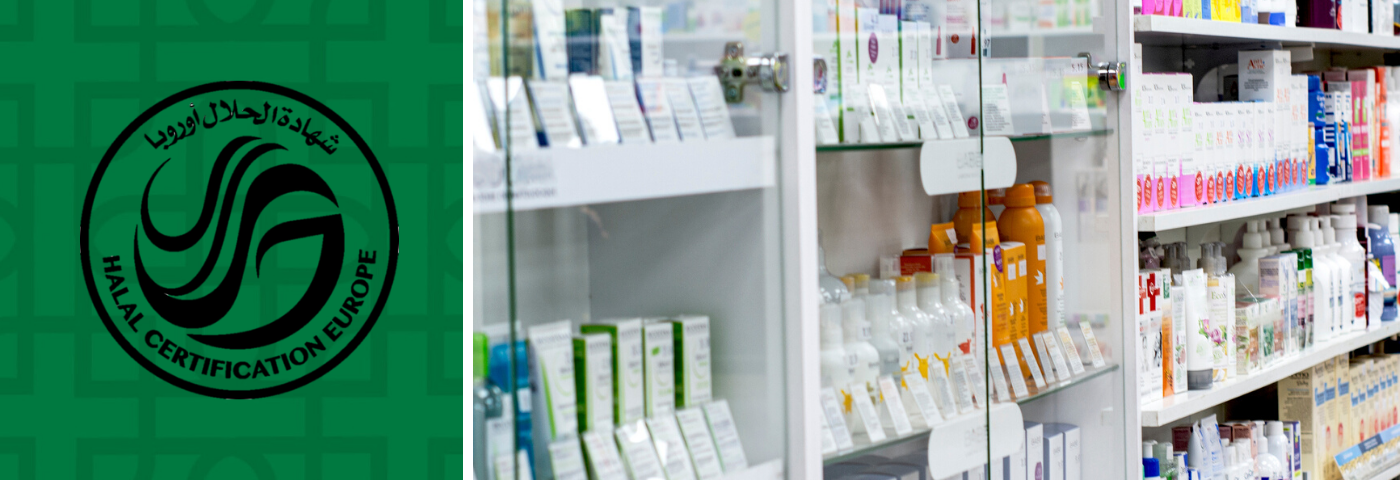The halal-certified logo is one that many Muslims look out for when purchasing and consuming goods. Not only is certification beneficial to companies from a marketability perspective, halal certification also provides Muslim consumers with confidence in the food and products that they are encountering.
The demand for certification has grown over the years. Muslim countries such as Indonesia are introducing new laws around halal certification, whereby products that enter and are traded within these countries must be halal-certified with a clear logo on their packaging.
Halal Certification Europe (HCE)
One such example of a halal certification body is Halal Certification Europe (HCE), an independent non-profit organisation offering certification of food, pharmaceuticals, cosmetics, packaging and industrial sanitisers.
Aiming to set the highest standards within their certification process, HCE and their team of technical advisors guarantees an authentic and credible halal certification. Once a product is certified, it gains use of the well-known HCE halal-certified logo and will undergo monitoring and auditing post-certification to ensure that standards of quality are upheld.
The accreditations Halal Certification Europe (HCE) has obtained have allowed its clients to export their products worldwide. HCE has many official accreditations from governmental halal organisations, including, but not limited to Gulf countries, UAE, Malaysia, Indonesia, Singapore and many more.
Advantages of European Halal Certification
-
Increased marketability
With over 50 million Muslims in Europe and approximately 1.8 billion Muslims worldwide, a halal certificate can increase the marketability of a product, increasing its appeal to a wider range of consumers.
-
Increased ability for exportation
For countries that require products to be halal-certified, gaining certification can increase the ability of your product to be exported to these places.
-
Certification of individual ingredients
If your product is made up of halal-certified ingredients, the chances of the product itself gaining certification are much higher and the process becomes streamlined.
-
Acquisition of the halal certified logo
The halal-certified logo is well-known to those within the Muslim community and represents a level of trust and quality. Having the logo on your packaging means that your product can be more readily accepted by halal consumers.
Defining Halal, Haram and Mashbooh
Halal:
By definition, halal means permissible, legal and lawful. Halal products are those that follow the rules of Islamic law.
Haram:
The opposite of halal, haram means prohibited, not lawful and illegal. Examples of haram products are those that contain pork, alcohol and meat from animals or birds that are already dead.
Mashbooh:
There’s a grey area in between haram and halal, called mashbooh. This means it’s not possible to tell whether the product or ingredient is halal. According to Islamic law, Muslims must not consume anything that is classed as mashbooh.
An Overview of the Different Halal Certifications
Halal Certification Europe offers two different certification schemes depending on a company’s plans for exportation:
- GSO Scheme:
For certification that is valid in UAE, Saudi Arabia, Kuwait, Qatar, Bahrain, Oman and Yemen; as well as other countries across the world.
- Non-GSO Scheme:
For certification that is valid in Malaysia, Indonesia, Singapore, Europe, America, Africa, etc. (countries other than Gulf Countries).
An Overview of the Certification Process:
- Application
- Raw material vetting/document review
- Site audit
- Halal certification (logo & certificate)
To gain halal certification, companies can apply to Halal Certification Europe online and receive a quotation for the work.

